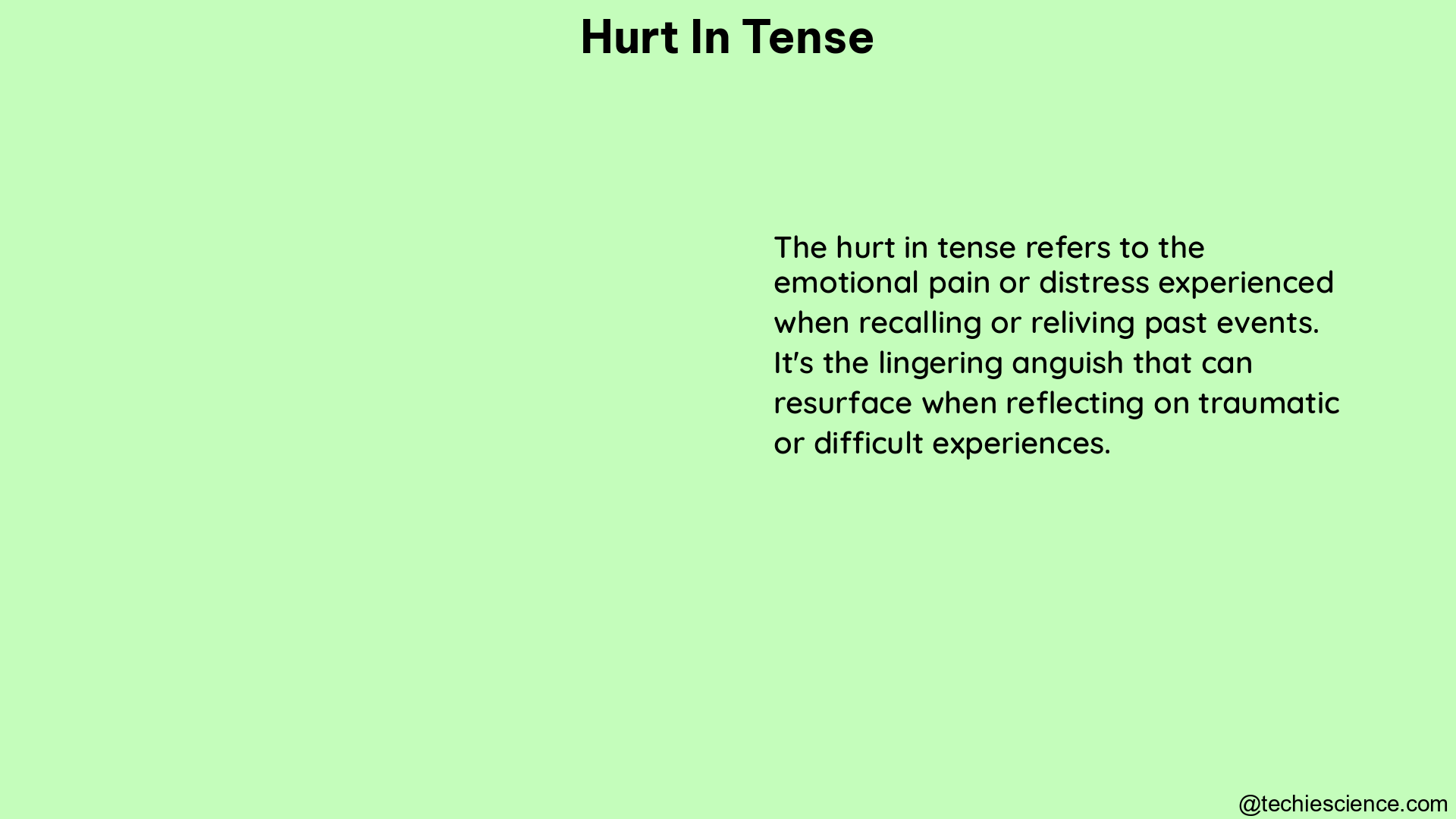The verb “hurt” is an irregular verb, which means its form does not change in the present tense, past tense, and past participle. This unique property makes it essential to understand its usage in different tenses. In this comprehensive guide, we will delve into the intricacies of using “hurt” in various tenses, providing advanced explanations and examples to help you master this irregular verb.
Present Tense
Simple Present Tense
In the simple present tense, the verb “hurt” remains the same.
– Example: I hurt my back while lifting weights.
Past Tense

Simple Past Tense
The past tense of “hurt” is also “hurt”.
– Example: I hurt my back while lifting weights.
Past Participle
The past participle of “hurt” is “hurt”.
– Example: I have hurt my back, and it still hurts.
Present Participle
The present participle of “hurt” is “hurting”.
– Example: I am hurting from the injury.
Perfect Tenses
Present Perfect Tense
The present perfect tense of “hurt” is “have hurt”.
– Example: I have hurt my back recently, and it still hurts.
Past Perfect Tense
The past perfect tense of “hurt” is “had hurt”.
– Example: I had hurt my back before the competition, so I couldn’t participate.
Future Perfect Tense
The future perfect tense of “hurt” is “will have hurt”.
– Example: I will have hurt my back by the time I finish this workout.
Continuous Tenses
Present Continuous Tense
The present continuous tense of “hurt” is “am hurting”.
– Example: I am hurting from the injury right now.
Past Continuous Tense
The past continuous tense of “hurt” is “was hurting”.
– Example: I was hurting during the entire game.
Future Continuous Tense
The future continuous tense of “hurt” is “will be hurting”.
– Example: I will be hurting after this intense workout.
Advanced Examples
Past Perfect Continuous Tense
The past perfect continuous tense of “hurt” is “had been hurting”.
– Example: I had been hurting for weeks before I saw a doctor.
Future Perfect Continuous Tense
The future perfect continuous tense of “hurt” is “will have been hurting”.
– Example: I will have been hurting for months by the time I recover.
Key Points
- The verb “hurt” remains the same in the present tense, past tense, and past participle.
- The present participle of “hurt” is “hurting”.
- The perfect and continuous tenses follow the standard verb conjugation patterns.
References
- Preply. (2021). What is the past form of hurt? | Learn English. Retrieved from https://preply.com/en/question/what-is-the-past-form-of-hurt-72636
- GrammarBrain. (2022). Past Tense of “Hurt” (Grammar + Examples). Retrieved from https://grammarbrain.com/past-tense-of-hurt/
- Socratic. (2018). What is the past tense of the word “hurt”? + Example. Retrieved from https://socratic.org/questions/what-is-the-past-tense-of-the-word-hurt
- Writing English. (n.d.). Hurt – Writing English. Retrieved from https://www.writingenglish.com/cverbs/hurt.htm
- WordReference.com. (n.d.). Conjugation of hurt. Retrieved from https://www.wordreference.com/conj/enverbs.aspx?v=hurt

Hi…. I am Goutam Datta. I have completed a double M. A. in English and B. Ed. I am a creative writer. Currently, I am a part of the LambdaGeeks.